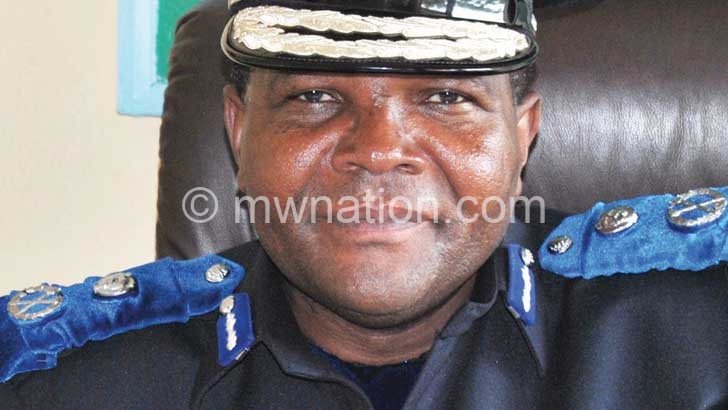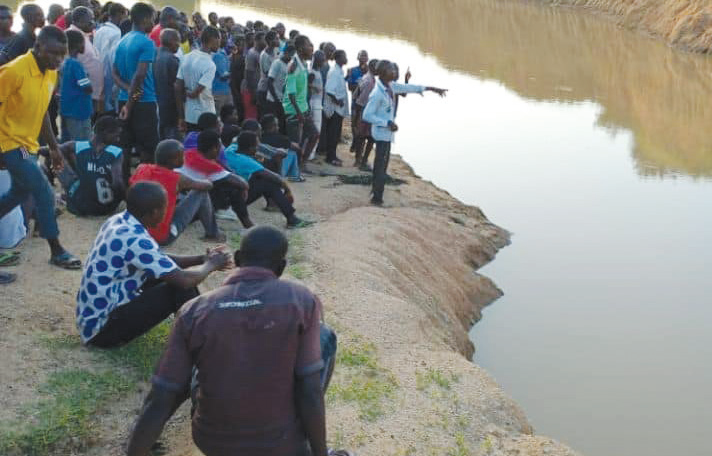Malawi has of late witnessed a disturbing trend of breakdown in security where thieves have gone on rampant breaking into people’s houses; and even dared stealing at Sanjika Palace and some police formations. EDWIN NYIRONGO asked Malawi Police Service INSPECTOR GENERAL (IG) GEORGE KAINJA to explain what is happening. Excerpts:
Kainja: We should not neglect our own security
Why has the security situation deteriorated in the country?
The security situation in the country has not deteriorated per se. What we believe is happening is that through both social and mainstream media and some people with a motive unknown to us are trying to influence a perception in the public that there is a security breakdown in the country. However, statistical evidence does not support their assertion. For instance, in January 2022, we recorded 3 316 crimes as compared to 3 711 criminal incidents recorded in January 2021, representing a 10.6 percent decline.
Similarly, we had declines in major categories of crimes. For instance, murder cases reduced from 69 incidents in January 2021 to 60 incidents in January 2022; robberies reduced from 167 cases in January 2021 to 149 in 2022; breakings fell from 882 in January 2021 to 738 in January 2022 and cases of defilement reduced from 237 in January 2021 to 149 in January 2022. From these statistics, we are assured that we are on the right trajectory.
Then what is your take on criminal activities taking place in the country?
The bulk of the crimes are what can best be described as “crimes of need”. These are crimes that people commit to cope with a hard economic environment, particularly hunger. These crimes have a seasonality that shows a spike between January and March every year, which is the season when food reserves are at the lowest at the household level. Admittedly, there are a few criminal incidents that have recently occurred that some media influencers are using to promote the security lapse narrative. Prominent among these are the theft of car batteries at Lilongwe Police Station; rifle theft at Zomba Police Station; attack on the Catholic Bishop’s house in Chikwawa and theft of razor wire at Sanjika Palace administration building in Blantyre. We are aggressively pursuing these cases and we have made significant gains.
But shouldn’t Sanjika Palace be one of the most secure places in the country?
The theft in question did not occur at Sanjika Palace. The truth is that a piece of razor wire was stolen from a building outside of the palace. This building is used by State House as an administration office. But promoters of the security lapse storyline are reporting as though this incident happened inside Sanjika Palace, which is a total misrepresentation of reality. Be assured that the security at Sanjika Palace and all other presidential residences is intact and increased.
How are robbers able to even invade police stations and steal things such as guns and vehicles?
These are unfortunate events but they, by no means, suggest a security breakdown. They are a reminder to us that as we provide security to the public, we should not neglect our own security. They are a reminder to us that we should constantly interrogate and review the security measures we have put in place at our offices and residences. They are a reminder that the bad guys are watching us and are scheming to outplay us in the theatre of operations. These incidents remind us against complacency and keep us on our toes always.
May I also set the record correct that the criminals who attacked Lilongwe and Zomba police stations are not robbers, but thieves, stealthy thieves who sneaked into our premises under the cover of darkness and stole what they stole. Regarding the theft in Zomba, rest assured that we are making good progress in our investigations.
What is your view on claims that you do not have capable officers to swiftly deal with or prevent such cases?
That is simply not true. In fact, the quality of our officers has improved significantly during the past two years. This is because we have invested more effort and resources in training them in different areas of specialisation. Investigators, most of whom had been attached to CID without the minimum required training, have been trained. Lots of traffic officers who had been attached to the traffic branch without the requisite training have also been trained. We have also conducted refresher courses for some officers and discipline courses for those officers we thought had discipline issues.
What is your take on the notion that some people perpetrate mob justice because they do not get required assistance from police.
To suggest that mob justice is carried out because people feel the police are not helping them is both an oversimplification of the complex phenomenon of mob justice and an over-apportioning of the blame on the police. Causes of mob justice have been found to range from failures of the criminal justice system, including the police, the judiciary or the correction system. The phenomenon can also be caused by weak laws, society’s love for quick justice, ignorance of the law, particularly concerning bail and corruption in the law enforcement, judicial or prison systems.
Where is rapid response considering that it takes hours for police to come after reporting an incident?
The rapid response system is in place, although it is not in as great a shape as we would have wanted it to be. It was hit by a shortage of vehicles and a poor communication system. Currently, we run a system in which our cities are divided into zones, where, in the ideal situation, each zone must have at least one vehicle. But because our fleet has dwindled, our response to calls is slower. I am glad to report, however, that we are working towards giving a new lease of life to the system as government has procured new vehicles.
Shouldn’t the ‘shoot-to-kill’ strategy be used considering that people now live in fear?
A shoot-to-kill policy against criminals is a bad policy and we do not consider it for an option. It is unlawful and does not sit well with democracy. In addition, there is no empirical evidence that it is effective in reducing crime.
What are you doing to ensure that there is enough security in the country?
The problem that we have is not that of a security lapse or breakdown but increased public perception of insecurity. People feel the rate of crime has increased when statistical evidence point to the opposite direction. We have, therefore, put together strategies that fight crime alongside strategies that fight the fear of crime.
Sooner we will have 1 600 more officers, which will give us an edge in terms of covering the ground and increasing police visibility. By the end of the year we will have received 3 000 more officers. In addition, we are also receiving a fleet of 69 new Land Cruisers. Although these are not enough compared to our needs, they will go a long way to increase our mobility, which is at the core of policing.
The post ‘Security has not deteriorated’ appeared first on The Nation Online.
 Moni Malawi
Moni Malawi 

